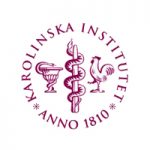项目介绍
To be a doctoral student means to devote oneself to a research project under supervision of experienced researchers and following an individual study plan. For a doctoral degree, the equivalent of four years of full-time doctoral education is required.
The research group
The Department of Cell and Molecular Biology (CMB) is a department with a strong focus on basic research. CMB conducts research and education in cell biology, molecular biology, developmental biology, stem cell biology, cancer biology, and infection biology. CMB is located in Biomedicum – a interdisciplinary research center that brings together much of the experimental research at Karolinska Institutet, Campus Solna, under one roof to promote collaboration. Biomedicum houses approximately 1,200 researchers and enables the sharing of expensive and advanced equipment among multiple research groups.
The Spalding lab is dedicated to exploring fundamental questions in human adipose tissue biology using innovative techniques such as single cell sequencing, radiocarbon dating, confocal microscopy, and flow cytometry. The lab’s emphasis on basic science, combined with its strong clinical collaborations and expertise in working with human samples, offers the successful applicant an opportunity to be a part of a translational research team, aiming to address real-world health challenges, especially in the fields of obesity and associated co-morbidities.
The doctoral student project and the duties of the doctoral student
Many diseases, including cardiovascular disease, type 2 diabetes and cancer, strongly associate with obesity, making obesity one of the major health challenges facing the world today. Understanding how fat cells (adipocytes) respond to obesity and contribute to pathological processes is more relevant than ever.
The Spalding lab recently identified how human adipocytes can reactivate a cell cycle program in obesity and hyperinsulinemia and senescence. The doctoral student will investigate how senescence and aging related changes to human fat cells impact on cancer cells. The student will work with human adipose tissue samples to perform adipocyte cell culture, immunocytochemistry, flow cytometry, confocal and reflected microscopy as well as molecular biology techniques (including western blot, qPCR and RNAseq, omics analyses).
What do we offer?
A creative and inspiring environment full of expertise and curiosity. Karolinska Institutet is one of the world’s leading medical universities. Our vision is to pursue the development of knowledge about life and to promote a better health for all. At Karolinska Institutet, we conduct successful medical research and hold the largest range of medical education in Sweden. As a doctoral student you are offered an individual research project, a well-educated supervisor, a vast range of elective courses and the opportunity to work in a leading research group. Karolinska Institutet collaborates with prominent universities from all around the world, which ensures opportunities for international exchanges. You will be employed on a doctoral studentship which means that you receive a contractual salary. Employees also have access to our modern gym for free and receive reimbursements for medical care.
Eligibility requirements for doctoral education
In order to participate in the selection for a doctoral position, you must meet the following general (A) and specific (B) eligibility requirements at latest by the application deadline.
It is your responsibility to certify eligibility by following the instructions on the web page Entry requirements (eligibility) for doctoral education.
A) General eligibility requirementYou meet the general eligibility requirement for doctoral/third-cycle/PhD education if you:
- have been awarded a second-cycle/advanced/master qualification (i.e. master degree), or
- have satisfied the requirements for courses comprising at least 240 credits of which at least 60 credits were awarded in the advanced/second-cycle/master level, or
- have acquired substantially equivalent knowledge in some other way in Sweden or abroad.*
Follow the instructions on the web page Entry requirements (eligibility) for doctoral education.
*If you claim equivalent knowledge, follow the instructions on the web page Assessing equivalent knowledge for general eligibility for doctoral education.
B) Specific eligibility requirement
You meet the specific eligibility requirement for doctoral/third-cycle/PhD education if you:
– Show proficiency in English equivalent to the course English B/English 6 at Swedish upper secondary school.
Follow the instructions on the web page English language requirements for doctoral education.
Verification of your documents Karolinska Institutet checks the authenticity of your documents. Karolinska Institutet reserves the right to revoke admission if supporting documents are discovered to be fraudulent. Submission of false documents is a violation of Swedish law and is considered grounds for legal action.
(A) and (B) can only be certified by the documentation requirement for doctoral education.
Skills and personal qualities
We seek a student with a background in molecular biology, physiology or the equivalent. The candidate should have a good team spirit, be self-motivated and a keen interest in human adipose biology. Experience working with molecular biology techniques (qPCR, WB, Elisa etc), immunocytochemistry, confocal microscopy and the isolation and culture of primary human fat cells are a strong plus. A background in adipose or cancer biology is of merit. The student is required to have good communication skills in English (written and verbal).
Terms and conditions
The doctoral student will be employed on a doctoral studentship maximum 4 years full-time.
联系方式
电话: 08-524 800 00相关项目推荐
KD博士实时收录全球顶尖院校的博士项目,总有一个项目等着你!




